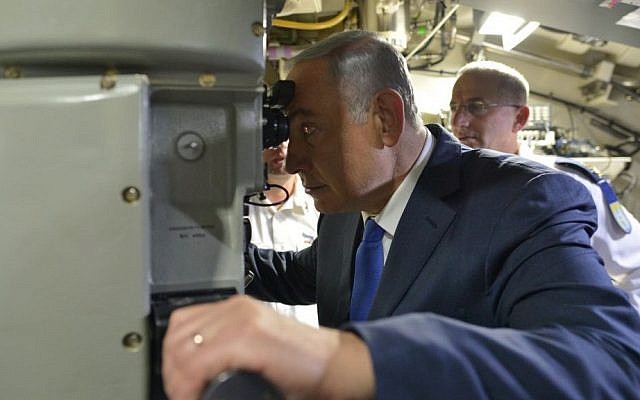The week marks the one-year anniversary since the establishment of the State Commission of Inquiry into submarine and naval vessel purchases that took place under the previous government of Prime Minister Benjamin Netanyahu.
Israel bought the ships from German shipbuilder Thyssenkrupp in a questionable $2 billion deal that is under investigation. Potential corruption and bribery.
Netanyahu is not considered a suspect, but he testified to police in connection with the deal, and several of his close associates have been indicted and convicted for his participation in the negotiations.
The Commission of Inquiry was formed under former premier Naftali Bennett, and was chaired by former Supreme Court President Asher Grunis.
Even after a full year has passed since then, the committee has not yet held a single public hearing, nor has the anniversary acknowledgment been given.
State commissions of inquiry, the most serious type of Knesset commission, are charged with evaluating the processes and decision-making employed by the political echelon concerning sensitive purchases. With wide-ranging powers to summon witnesses and testify, it runs a quasi-judicial process that may result in recommendations for further action against both individuals and public sector bodies.

Prime Minister Benjamin Netanyahu boards the new submarine ‘Rahav’ at the Israeli Naval Base in Haifa on January 12, 2016. (Koby Gideon / GPO)
Since the start of the commission’s deliberations, its members have devoted weeks to collecting and studying relevant materials. As part of this process, the commission invited a range of experts from the defense establishment, who would later be called to testify as formal witnesses.
Along with Grunis, the panel also includes former Supreme Court judge Zvi Zilbertl, former Bank of Israel governor Karnit Flug, former Israel Navy commander Avraham Ben-Shoshan and former Israeli Air Force procurement chief Jacob Baartman.
Those already called to speak before the commission as part of the material-gathering phase say that not all commission members were present at the meetings.
In the early stages of the commission’s work (at least in the above meetings) only two of the five members of the panel were present. The rest of the members who attended the meetings were advisors or assistants to committee members who requested paperwork, information and background.
Earlier this month, the commission moved beyond the preliminary stage of studying the material to summon formal witnesses.
However, by this time, the name of only one witness has been publicly announced – Amos Gilad, who at the time of the purchase of submarines was the director of the Bureau of Political-Military Affairs of the Ministry of Defense.
The names of any other witnesses, if they exist, are unknown. Nor is it known how many times a week the commission meets, and when it does, which panel members are present.
Until this month, the commission has been meeting in a Defense Ministry building with a side entrance to the Tel Hashomer compound near Tel Aviv, the ministry’s payments department and the former location (or so it is said) of the Israel Defense Forces.
Next to the building is the former military police headquarters, and to attend any discussions of the commission, it is necessary to pass through military checkpoints, making it difficult for journalists to participate in any future discussions by the panel.
While the commission was established last January, a few months later the Foreign Affairs and Defense Committee of the Knesset modified the decision so that the committee’s deliberations may be made generally public unless the panel determines that classified matters related to state security and foreign relations were being discussed.
But despite that decision, so far everything has been conducted behind closed doors, and reporters have not been invited to cover the proceedings.

Activists call for the formation of a committee of inquiry into the so-called submarine case outside the Prime Minister’s Office in Jerusalem on January 23, 2022. (Olivier Fitoussi/Flash90)
There is a chance that this secrecy will allow the commission to survive. Those connected to the panel have expressed concern that Netanyahu’s new government will try to reduce its scope, or even move toward a government decision to eliminate its work.
Some of the witnesses appearing and speaking before the Committee are over 80 years of age and may have difficulty recalling details due to the passage of time since the procurement procedures.
One of the key witnesses is 83-year-old former president Reuven Rivlin, who in 2015 – during a visit to Berlin – expressed concern about the sale of an advanced submarine to Egypt to German Chancellor Angela Merkel.

German Chancellor Angela Merkel, right, and President Reuven Rivlin, left, at the Chancellery on May 12, 2015 in Berlin, Germany. (AP Photo/Michael Sohn)
In that famous meeting, Merkel told him something he didn’t know — that Netanyahu had approved the sale. Rivlin was astonished.
These things should be heard by the committee – and the media should be allowed to cover the panel’s deliberations.

